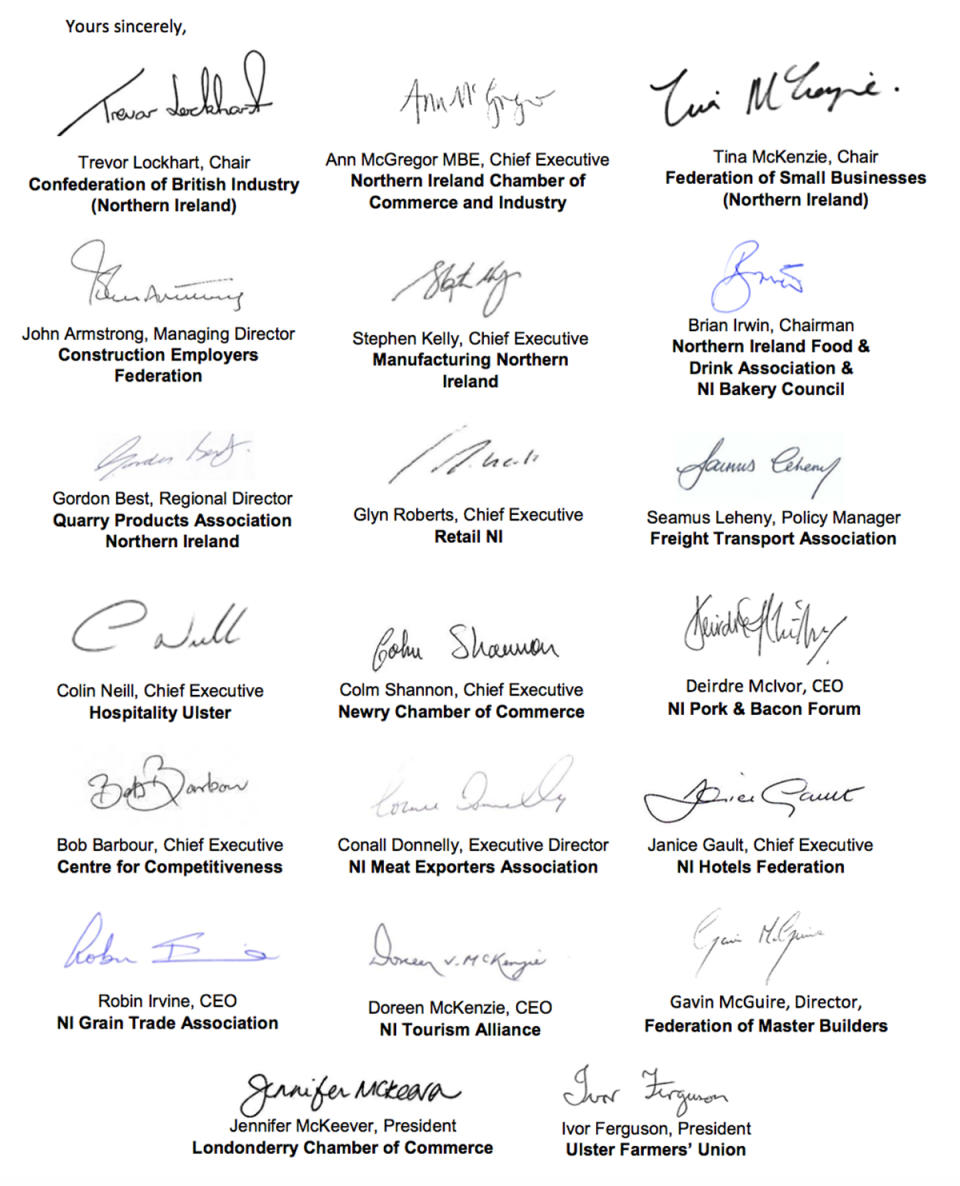21 Northern Ireland business groups warn of post-Brexit labour shortages

In an unprecedented move, 21 of Northern Ireland’s leading business organisations have written to prime minister Theresa May, urging her to tackle severe Brexit-related labour shortages in the region.
Since the June 2016 Brexit referendum, the number of workers from the European Economic Area in Northern Ireland has fallen by 26%—something the groups warn is “adding further pressure to an already tight labour market.”
Last month, a report from the Migrant Advisory Committee, which is likely to influence UK government policy, recommended the drastic limitation of the post-Brexit immigration of low-skilled European Union migrant workers.
Whole sectors of the Northern Irish economy, such as its farming and manufacturing sectors, depend on low-skilled migrant workers. Experts and interest groups have previously warned that many businesses may be forced to move south of the border to Ireland if they are not able to hire such workers from the EU.
READ MORE: Migrant report recommendations would hit the lifeblood of Northern Ireland’s economy
“Unfortunately, it fails to provide the necessary solutions and we believe it is therefore critical to create an immigration policy with sufficient flexibility to address Northern Ireland’s labour needs,” the letter says.
Research conducted by the Confederation of British Industry indicates that a substantial cut to both EU and international workers would see a 9.1% GDP decrease for Northern Ireland by 2041.

In the letter, which was also sent to home secretary Sajid Javid and Northern Ireland secretary Karen Bradley, the groups advise that Northern Ireland needs an approach similar to that of Ireland, which has already introduced a sector-based scheme that grants visas to non-EU workers.
“We need regional flexibility to resolve the significant labour challenges faced by key sectors of Northern Ireland’s economy,” the letter says. Despite the concerns raised by local industry over the last year, they have not received any indication that “there has been serious consideration given to the solutions required,” the organisations say.
The organisations include farming unions, employers federations, retailer groups, hospitality sector representatives, as well as the Northern Ireland Chamber of Commerce and Industry and the Confederation of British Industry.

 Yahoo Finance
Yahoo Finance 